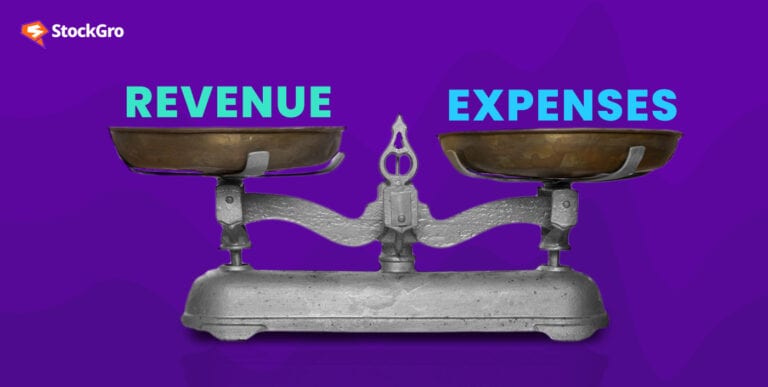
If you’ve been curious about the phrase “capital market”, you’ve come to the right place. Whether you’ve overheard it in a conversation or read about it in the news, understanding the capital market is key to grasping the world of investments and finance. Let’s dive in and uncover the capital market meaning and its significance.
What is the capital market?
The capital market is a broad avenue where buyers and sellers engage in the trade of financial securities. In simpler terms, it’s a marketplace where businesses and governments raise funds to finance their operations and long-term projects. Imagine it as a grand supermarket, but instead of groceries, you have financial tools like stocks and bonds up for grabs.
Capital market examples
To visualize this better, consider the following real-world examples:
- A company issues shares to the public through an Initial Public Offering (IPO). This is done in the capital market.
- A government wants to build a new bridge and needs funds. They issue bonds to the public to raise this money, again, in the capital market.
You may also like: A guide to stock dividend
Components of capital market
The capital market isn’t just one big market. It’s divided into two main components:
- Primary market: This is where new securities are issued. When a company first sells its shares to the public, it’s doing so in the primary market.
- Secondary market: This is where securities are traded after their initial issuance. If you’ve heard of stock exchanges like the New York Stock Exchange or the Nasdaq, these are part of the secondary market.
Also read: A guide to share market
Capital market instruments
Within the capital market, various instruments facilitate the buying and selling process. These include:
- Stocks: Shares of a company that represent ownership.
- Bonds: Debt instruments where you lend money to the issuer in exchange for periodic interest payments and the return of the bond’s face value at maturity.
- Derivatives: Financial contracts whose value is derived from an underlying asset, such as stocks or commodities.
Also read: Essential guide to candlestick patterns for beginners
Types of capital market
Beyond the primary and secondary market distinction, the capital market can also be categorized based on the nature of the financial instrument or the duration for which the instrument is traded:
- Equity markets: Where ownership securities like stocks are traded.
- Debt markets: Where debt instruments like bonds are traded.
- Money markets: For short-term debt instruments with maturities less than a year.
- Derivatives markets: Where derivatives contracts are traded.
Functions of capital market
You might be wondering, why does the capital market matter? Here’s why:
- Mobilizing savings: It channels the savings of individuals into productive investments.
- Price discovery: It helps in determining the prices of various financial instruments that reflect the demand and supply.
- Liquidity: It provides a platform where assets can be easily converted to cash.
- Risk sharing: It allows investors to spread and transfer risk.
Structure of capital market
The structure of the capital market can seem intricate, but it’s simply an organized system comprising:
- Regulatory bodies: Like the Securities and Exchange Commission, which ensure the market functions transparently and fairly.
- Intermediaries: Such as brokers and dealers who facilitate transactions.
- Investors: Individuals or entities looking to invest their money.
- Issuers: Entities like corporations or governments that issue securities to raise funds.
Importance of capital market
The capital market plays an indispensable role in the modern economy:
- Economic growth: By facilitating the movement of wealth between investors and those in need of capital, it fuels economic activity and growth.
- Job creation: Companies can expand, innovate, and create jobs when they can raise funds efficiently.
- Wealth distribution: It provides an opportunity for individuals to invest, grow their wealth, and secure their financial future.
Journeying deeper into the capital market
Now that you have a foundational understanding of the capital market, you might be interested in delving a bit deeper into its intricacies. But before you do, always remember the basics.
Advantages for the average individual
Many people assume that the capital market is solely the domain of large corporations and seasoned investors. However, the truth is, everyone can benefit from it. Here’s how:
- Savings and investments: By purchasing bonds or shares, you’re not just storing your money; you’re allowing it to grow. Your savings, when invested correctly, can earn more than what a regular bank account might offer.
- Diversification: The capital market offers a range of instruments. This means you can spread your investments and minimize risks.
- Retirement planning: With proper investments in the capital market, individuals can ensure they have a comfortable retirement. Many opt for long-term bonds or dividend-paying stocks to secure a steady income for their golden years.
Challenges in the capital market
While the capital market offers numerous opportunities, it’s essential to be aware of its challenges:
- Volatility: Prices of securities can be unpredictable. This is especially true for stocks, which can fluctuate based on a company’s performance, industry trends, or global economic factors.
- Need for knowledge: To make the most of the capital market, one must stay informed. This might mean keeping up with news, understanding economic indicators, or even just knowing the basics of how markets operate.
- Potential for loss: As with any investment, there’s no guarantee of profit. It’s possible to lose the money you’ve invested, which is why it’s crucial to make informed decisions and possibly seek advice from financial experts.
The Future of the capital market
As technology evolves, so does the capital market. With the advent of digital currencies, online trading platforms, and advancements in financial technologies, the way we understand and interact with the capital market is constantly changing.
- Digital platforms: These platforms are democratizing access, allowing even more people to participate in the capital market with ease.
- Globalization: With increasing interconnectivity, capital markets around the world are more intertwined than ever, offering a broader landscape for investments.
- Sustainable investing: The modern investor is not just looking at profits but also at how companies align with their values, especially concerning environmental, social, and governance factors.
Wrapping it up
The capital market is not just a term or a concept. It’s a dynamic world that affects our everyday lives, from the health of our economy to our personal financial growth. As you venture deeper into understanding its mechanisms, always remember the value of informed decisions and the importance of continuous learning. The capital market, with all its complexities, holds the promise of a brighter financial future for those willing to engage with it intelligently.

